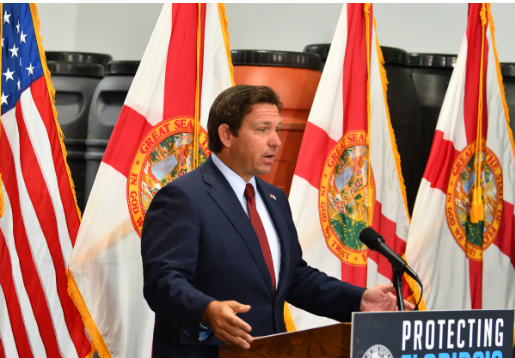Florida Teens Could Soon Work Overnight! Lawmakers Push Controversial Bill
TALLAHASSEE, FL — Florida lawmakers are considering a controversial bill that could dramatically change child labor laws, allowing teens as young as 14 to work overnight and removing required meal breaks for 16- and 17-year-olds. The proposed changes are sparking a heated debate across the state, with business owners, parents, and child advocates weighing in on the potential impact.
What’s in the Bill?
If passed, the new legislation would roll back several protections for teen workers. Right now, Florida law prevents 16- and 17-year-olds from working past 11 p.m. on school nights and limits them to 30 hours per week during the school year. The bill would remove these restrictions, allowing them to work overnight and exceed the current hourly limits.
Even more controversial, the proposal would also allow 14- and 15-year-olds to work extended hours, including during the night, and eliminate the mandatory meal breaks for older teen workers. Supporters say these changes give families more control over their children’s work schedules, while opponents argue it could lead to exploitation.
Why Are These Changes Being Proposed?
State Senator Jay Collins, the bill’s sponsor, believes the government shouldn’t interfere with a parent’s decision on whether their child can work more hours. Collins and other supporters also argue that Florida businesses are struggling to find workers, especially after tougher immigration policies led to labor shortages. Some believe that letting teenagers fill these job gaps could help the economy.
Governor Ron DeSantis has signaled his support, seeing the bill as a way to boost the workforce at a time when many industries are desperate for employees.
Criticism and Concerns
While business owners and some lawmakers support the bill, many educators, child advocates, and parents are raising concerns. Critics worry that letting teens work long hours—especially late at night—could negatively affect their health, education, and overall well-being.
Jackson Oberlink, a spokesperson for Florida for All, called the bill “dangerous” and warned that it could take advantage of low-income and immigrant teens who might feel pressured to work more instead of focusing on school. Educators also worry that students who work late hours will struggle in class due to lack of sleep and study time.

What Happens Next?
The bill recently passed a Senate committee by a narrow 5-4 vote. It still has to go through two more committee reviews before reaching the full Senate for a final decision. The debate is far from over, and the coming weeks will determine whether Florida teens will see their work restrictions lifted—or if the state will keep its current child labor protections in place.
What do you think? Should Florida allow teens to work overnight, or does this bill go too far?


Comments are closed, but trackbacks and pingbacks are open.